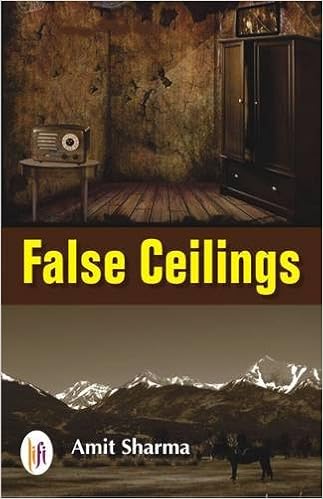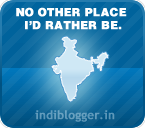Questioniare with Anurag Anand
How did you first get involved in with writing, are you an
imaginative person?
I
have been an imaginative person for as long back as I can remember. Even as a
child I would weave stories involving the world and the people surrounding me.
However, these stories would usually remain within my head barring some
arbitrary entries for publication in my school magazine. I have always been an
avid reader and perhaps the stories I read were responsible for planting the
bug of writing in my impressionable mind.
However,
my first published work (Pillars of Success, 2004) was more an outcome of
circumstances than sheer intent. My job took me to a city that was previously
alien to me. I had no family there and friends were hard to come by. Most
people at work were elder and had a family to account for their weekends, but
for me. Thus, it was the need to do something – preferably productive – with my
time that got me down to penning my first manuscript. The rest, as they say, is
history.
What do you find most challenging about your writing?
The
most challenging part about writing is the perseverance needed to complete a
manuscript that one has started working on. Often when I am in the midst of a
story, its characters and flow keep playing and refining themselves within my
mind. And if for some reason – occupational demands or otherwise – this thread
connecting me with the plot snaps, it becomes difficult to re-establish it.
Hence, I try and ensure that I devote some time for writing at least 2-3 days
in a week to avoid landing up with yet another incomplete manuscript on my
hands.
What do you do when you are not writing?
When
I am not writing (or engrossed in office work) I try to spend some quality time
with my family, especially my daughter, or I can be found in my bed cuddled up
with an interesting read.
Where do you see yourself in the next 6 months, and 5 years down the
road?
In
the next six months I don’t expect much to change with respect to my writing. I
would probably have written a series of short stories for a Gurgaon based
magazine and would probably be immersed in crafting my next novel. Over the
next five years I hope to have diversified to other mediums – namely,
television and digital media – to tell my stories.
How do you keep coming up with material / content for your story?
The
material lies strewn all around us. Each day in our lives we meet characters
and settings that are interesting in their own unique way. One simply needs to
be more observant so as to be able to draw inspiration from them.
Any specific tips you have for new writers who want to make it big
in the world of published books?
Yes
– don’t start writing with the premise of wanting to make it ‘big’. Writing is
an art, and as artists it is our duty to approach our work with utmost
sincerity and dedication. If you are able to achieve this, you will probably
end up with a work that will talk for itself.
What’s the best
thing a writer can give to his readers?
A smile, a tear or an
angry frown! A piece of writing which is able to elicit an emotional reaction
from its readers can be said to have fulfilled its purpose.
A lot of people
are interested in writing for the money earning potential. What are some tips for
people interesting in making money from writing? What are some realistic
expectations in regards to what can be made?
While English writing in
India has picked up over the past few years, opening new doors of opportunities
for aspiring authors, it has also had severe implications on the commercial
aspects of writing. Absolute number of books bought by readers (or sold) has
not increased in the same proportion as the number of new titles and authors
being introduced. Consequently the same pie (commercially) is being split
between many more claimants, making it increasingly difficult for new titles to
reach out to a sizeable number of readers. Having said that, there are authors
who, competition notwithstanding, are able to differentiate their works and garner
a healthy readership base for their books. Hence, to my mind, an author must
spend more time in shaping his work than worrying about ways and means to
market it. A good book will eventually find its base of readers and rake in the
moolah for its author whereas a run of the mill piece will forever struggle to
achieve commercial viability.
What motivates
you most in life?
I try and look for
motivation in the journey towards achieving a goal rather than the goal itself.
Like, in case of writing, I enjoy the process of writing and that is what
motivates me to keep going. At a more collective level, it is the smiles I am
able to bring about on the faces of those who matter in my life that drives me.
What has been
your strategy for creating visibility to yourself and your writing?
Unfortunately my day job
does not permit me as much time as I would have liked for promoting my books.
So, my actions in this regard are largely limited to organizing launch events,
some basic PR initiatives and social media communication/ promotions. Beyond
this I largely depend on my publishers for marketing my books, especially by
way of blog reviews and participation in literary festivals and events.
What was the
most challenging moment in your writing content development process and why?
The most challenging
moment was when I was working with a renowned Bollywood director towards
recreating the story of ‘The Legend of Amrapali’ in a celluloid friendly
version. When there are two creative minds working on the same canvas, it can
be difficult to find points of convergence on every matter under discussion.
Also, as an author of the base story, it was not easy for me to let go of the
plot twists or characters that I had so laboriously crafted.
Everyone has a
favourite / least favourite poet. Name yours and why?
Every artist puts his
heart and soul behind his works and thus it wouldn’t be fair for me to term any
of them as my ‘least favourite’. However, my favourite poet would be Shri
Harivansh Rai Bachchan. His collection of verses – Madhushala – captures the
nuances of life in one of the most melodious forms that I have come
across.
Name some of
the writers whom you look up to and why?
P G Wodehouse – for his
crisp sense of humour, Erle Stanley Gardner – for his sheer tenacity, Franz
Kafka – for giving a whole new meaning to morbid hopelessness and Cartoonist
Pran – for blessing a whole generation of Indian children with characters like
Chacha Chaudhary, Billu and Pinki.
What is the
story behind the name of your book?
Well, I would urge you to
read the book and find out for yourself. However, the one thing I can promise
you is that the title (Love on 3 Wheels) has a definite connect with the story
line. And if by any chance you are not able to figure it out, please feel free
to reach out to me for a complete refund.
Which genre do
you feel gets the raw deal?
Text books and poetry.
Text books, because of all the hate they draw from those students who are
forced to read them, and poetry because of its limited commercial reach. Many
of us like reading meaningful couplets – and sharing them on our social media
pages too – but when it comes to spending money behind a collection of the
same, the numbers decline more sharply than the blade of a sword.
Five adjectives
that describe you?
Enterprising, lively,
go-getter, romantic, approachable
What book would
you say has made the biggest impact good or bad on you?
Atlas Shrugged by Ayn
Rand. I had first read the book when I was still in middle school – it had
taken me a long-long time to run through the thick pile of pages. It was this
book that taught me the strength of characterization. As a rule I don’t read a
book more than once and I haven’t read Atlas Shrugged again either, but its
characters and their images remain fresh in my mind till this day.
Do you get
easily provoked by positive / negative comments?
I would be lying if I
said that I remain unaffected by the praise or criticism that my writing
garners. A spurt of elation or a fit of fury, as the comments might warrant, is
but natural. Only, I have been consciously trying to mellow down my reactions
and keep away from extremities.
Do you plan to
write more books, as every author dream it is?
Of course, I will
continue to write for as long as I enjoy writing.
Are you a
judgmental person, do you prefer to take sides instead of standing neutral?
I am instinctively an
aggressive person. Thus, my hard wiring is towards clearly aligning myself with
one of the warring factions in case of a conflict. However, with time I have
begun to realize the futility of it and instead I now try and look at things from
a more neutral viewpoint. Perhaps that’s what they call maturity.
What genre
attracts you the most and which genre you avoid?
I love reading crime
fiction. However, when it comes to self-help genre I tend to get pretty
selective about what I read.
Your Views on
increasing plagiarism?
Plagiarism has always
existed and I can’t state with certainty if it has increased in the recent
past. It is an evil and there’s no debating that. Only, there is a long way to
go before we have adequate systems and processes in place to curb it
completely. Till then, each one to his own, I guess.









.jpg)

